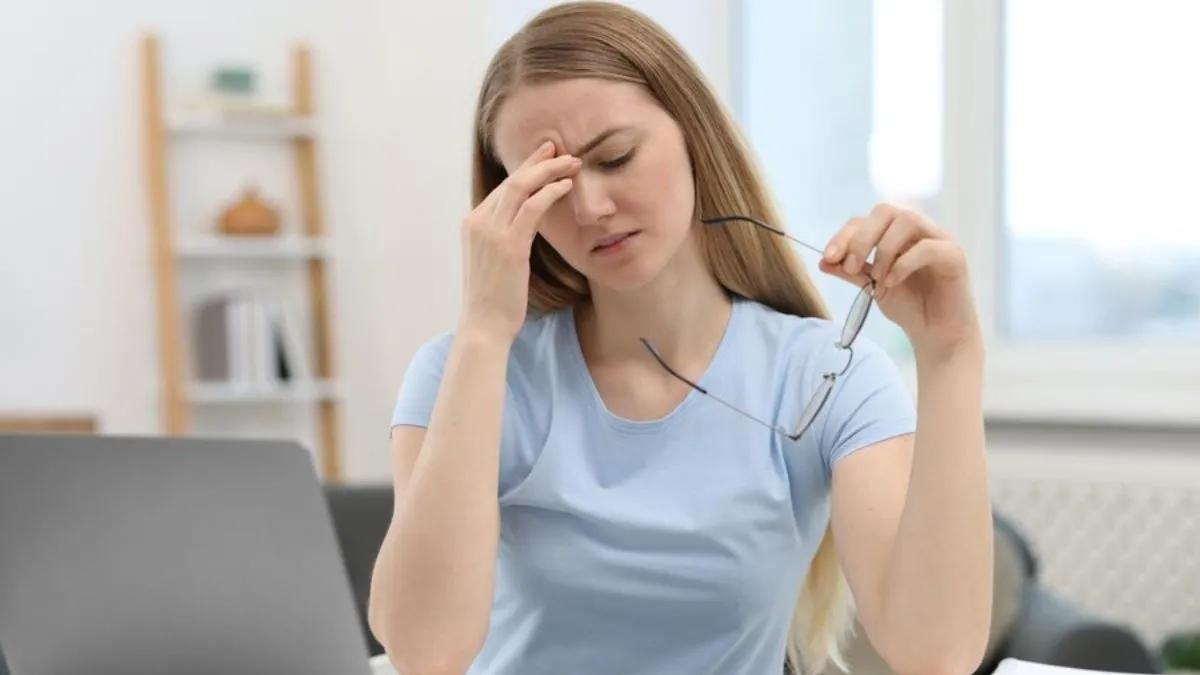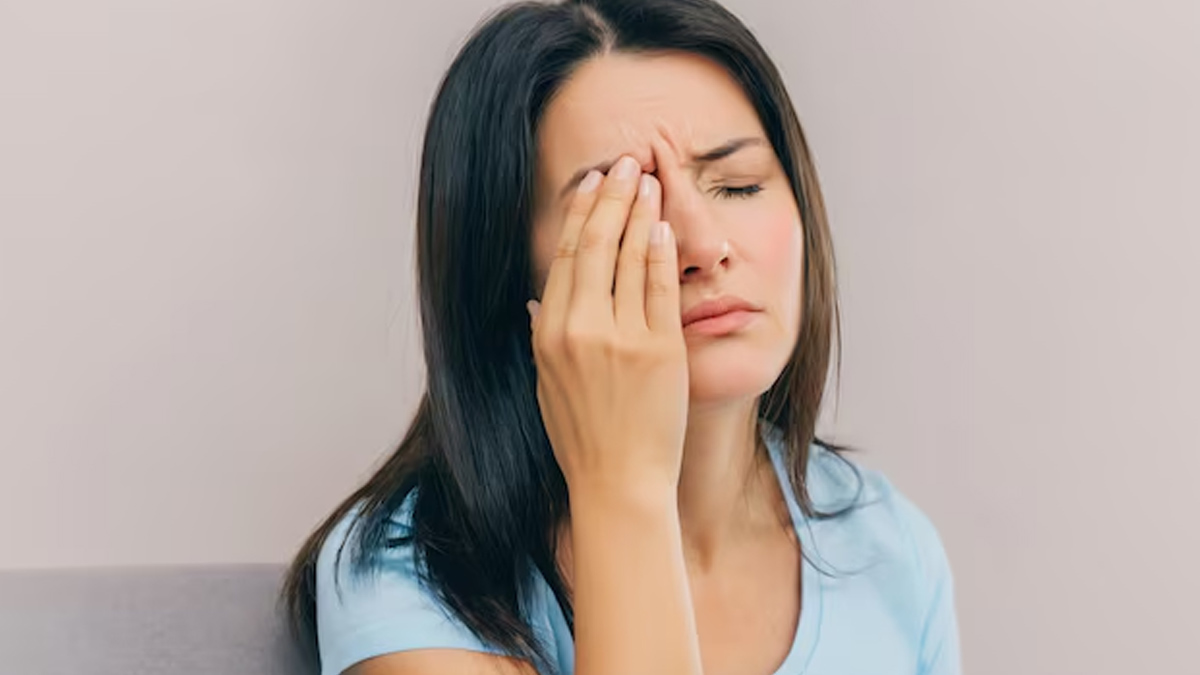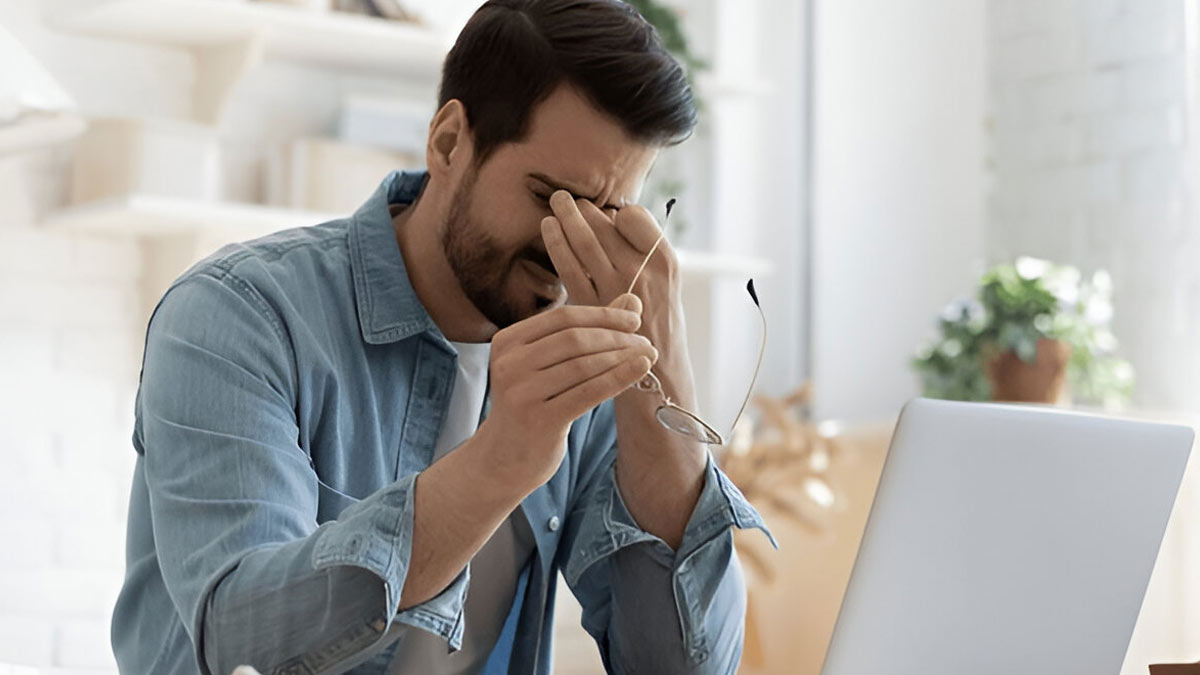
The alarm rings, but your day began an hour earlier, with a quick check of emails and a scroll through the news. The way to work is spent on your phone, and at work, you're stuck in front of a laptop for eight consecutive hours. Then comes a scroll through social media on your phone here and there. Finally, you’re back home, you pick up the remote, and finish the evening binging a new show.
Table of Content:-
Well, did that sound like your day was explained? To most working professionals, this isn't a day; it's become a way of life. We've lost the lunch break to a speedy, online detox and rationalised that constant scrolling is the new self-care. But as we're sorting through our mailboxes and keeping up with the latest news, our eyes are paying for it. The endless screen-gazing is more than a temporary strain; it's a quiet, ongoing stressor that is potentially speeding up the ageing of your eyes.
What's Really Happening to Your Eyes During Excessive Screentime?
Digital eye strain or Computer Vision Syndrome (CVS) is defined as when the eye stress is more than a fleeting headache. Although it does not result in permanent damage, the recurring effects of constant screen exposure can build up to result in persistent and annoying symptoms.
Also Read: 5 Fitness Myths Men Need to Stop Believing Today

We reached out to our expert, Shrey Kumar Srivastav, Senior Consultant and General Physician, Sharda Hospital - Noida, to understand what's behind the screen and how it can age our eyes faster. Here is what he shared with us:
1. Blinking Less, Drying More
If you're engrossed in a screen, your blink rate can decrease by over 50%. Blinking is necessary for distributing lubricating tears over the surface of your eye. The less you blink, the drier, redder, and irritated your eyes are.
2. Muscles Overtime
Your focusing muscles in your eyes are under constant flex as you look at a screen. “Picture having to hold a bicep curl all day long, eight hours a day. With time, this close, intense focus can result in eye strain, blurry vision, and an inability to refocus on something in the distance,” Dr Srivastav highlighted.
3. Blue Light Mystery
Digital screens emit high-energy blue light, which, while not conclusively proven to cause long-term damage, is linked to digital eye strain and can disrupt your body's natural sleep-wake cycle (circadian rhythm). Using screens late at night can make it harder to fall asleep, leading to a cascade of other health issues, including eye fatigue.
How to Spot the Signs of Screen-Induced Eye Strain
Dr Srivastav further highlighted that if your eyes are screaming silently for relief. Watch out for these symptoms:
- Sore, Tired, or Burning Eyes: A nagging sense of unease that refuses to leave with rest.
- Blurred or Double Vision: Your vision could become momentarily fuzzy, particularly when changing focus from your screen to anything else.
- Headaches and Neck Strain: The pressure on your eyes and the crummy posture you maintain while leaning over a device can refer pain into your neck, head, and shoulders.
- Sensitivity to Bright Lights: Your eyes could become oversensitive to bright light, a symptom called photophobia.
If these symptoms ring a bell, it's a telltale indication that your digital behaviour requires a reboot.

How to Protect Your Eyes in the Digital Age
“The answer is not to leave your job or abandon social media completely. It's about creating a long-term relationship with your devices,” Dr Srivastav shared. Making these expert-approved easy habits a part of your life can be the difference maker:
- Use the 20-20-20 Rule: This is your new catchphrase. Look at something 20 feet away for a minimum of 20 seconds every 20 minutes. This relaxes your eye muscles and keeps them from freezing up.
- Optimise Your Workspace: Place your screen at around an arm's length, with the top of the monitor at or below eye level. Dim the brightness to suit the room's light to minimise glare.
- Blink: Consciously blink more often. You can even send yourself a reminder on your phone or have an app do it for you.
- Try Eye Exercises: Easy exercises, such as moving your gaze from near to far objects, can enhance the flexibility and endurance of your eyes.
- Schedule a Check-Up: If you're having ongoing symptoms, see an eye care professional. An optometrist can test your vision, prescribe computer glasses or anti-glare coatings, and eliminate any underlying problems.
Real self-care isn't about the new app or filter. It's about logging off to log back in to yourself. Put down your phone, take a walk, read a book, or just close your eyes for a few minutes.
Also watch this video
FAQ
Q: Is digital eye strain permanent?
A: No, digital eye strain is generally a temporary condition. The symptoms, such as blurred vision and headaches, should resolve with rest and a break from your devices. However, if left unaddressed, the chronic discomfort can impact your quality of life.Q: Does blue light from screens cause blindness or long-term damage?
A: While sensational reports have been made, scientific studies have not yet produced definitive proof that blue light from computer and TV screens permanently harms your eyes, causing blindness. Still, it does lead to eye strain and interferes with your sleep pattern.Q: Do blue light glasses actually work?
A: Blue light-blocking glasses can help cut eye strain and enhance comfort for some individuals. They're worth considering, particularly if you sit in front of screens for extended periods, but they're not a replacement for good screen habits such as regular breaks.
Read Next
Why Is the Supreme Court Pushing For Early Sex Education In Schools? Expert Attempts To Decode
How we keep this article up to date:
We work with experts and keep a close eye on the latest in health and wellness. Whenever there is a new research or helpful information, we update our articles with accurate and useful advice.
Current Version
Oct 16, 2025 09:05 IST
Modified By : Chanchal SengarOct 16, 2025 09:05 IST
Published By : Tanya Srivastava